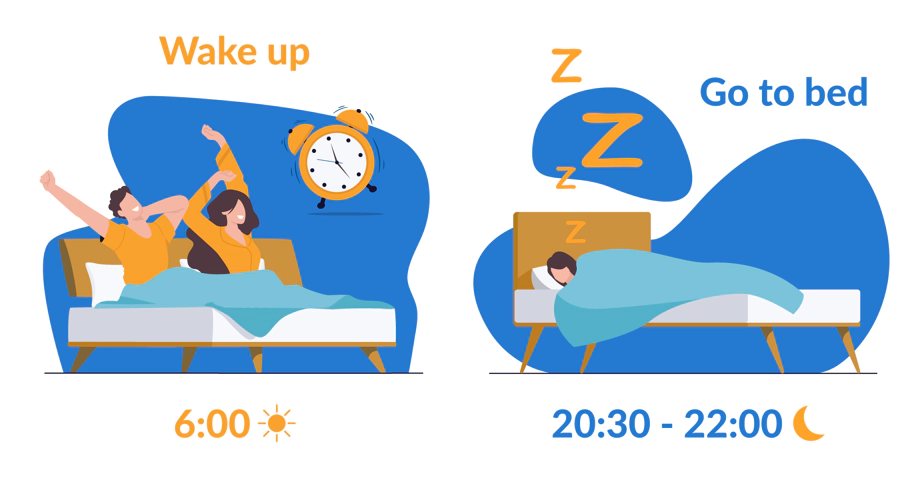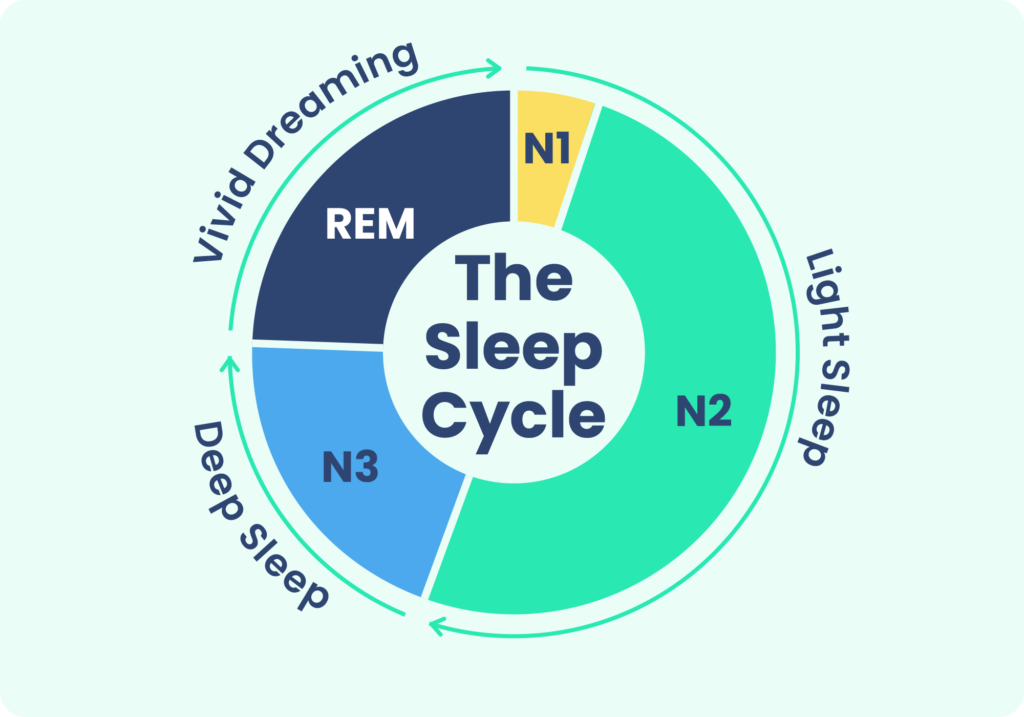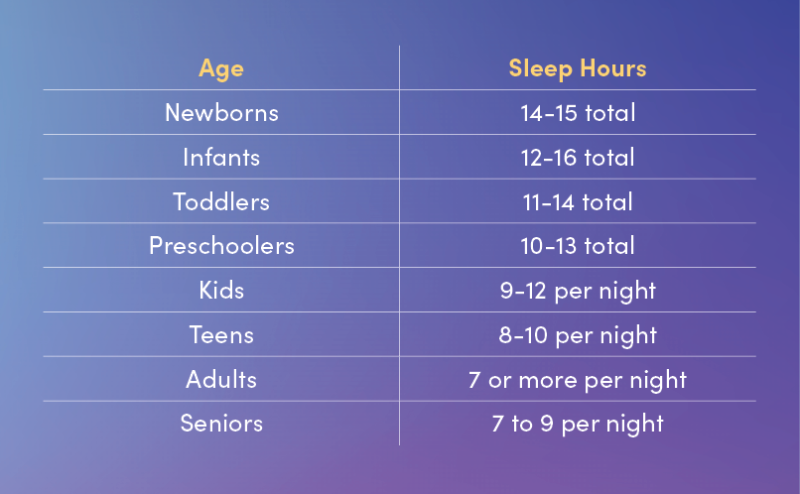The Science Behind Sleep Cycles: Why Timing Your Sleep Matters

We often hear that we need “8 hours of sleep” to function well. While this advice is a good general guideline, it overlooks one crucial factor: when you sleep and when you wake up. The secret to waking up refreshed isn’t just about the number of hours — it’s about aligning your rest with your sleep cycles.
What Are Sleep Cycles?
A sleep cycle is a series of stages the brain and body go through during sleep, typically lasting around 90 minutes. Each cycle includes:
-
Light Sleep (Stages 1 & 2) – Your body starts to relax, and brain activity slows.
-
Deep Sleep (Stage 3) – Essential for physical recovery, tissue repair, and immune function.
-
REM Sleep – Brain activity increases, dreams occur, and memory consolidation takes place.
During the night, you move through several of these cycles — usually four to six, depending on how long you sleep.
Why Timing Matters
If you wake up in the middle of deep sleep, your brain and body are not prepared for consciousness, which can lead to grogginess, irritability, and reduced mental performance. This is known as sleep inertia.
On the other hand, waking up during light sleep or the REM stage feels more natural and leaves you feeling more energized. The goal, therefore, is to plan your sleep so that you wake up at the end of a cycle — not in the middle.
The Role of a Sleep Calculator
A sleep calculator is a tool designed to help you determine the best times to sleep or wake up based on the 90-minute cycle rule. By accounting for the time it takes to fall asleep (usually around 15 minutes), it suggests schedules that align perfectly with your body’s natural rhythm.
For example, if you need to wake up at 6:30 AM, a sleep calculator might recommend going to bed at 9:15 PM or 10:45 PM — ensuring you complete whole cycles and avoid abrupt awakenings.
Health Benefits of Proper Sleep Timing
-
Better Energy Levels – Waking up during light sleep reduces fatigue.
-
Improved Mood – Adequate REM sleep supports emotional stability.
-
Enhanced Cognitive Function – Memory, focus, and problem-solving skills improve when sleep cycles are respected.
-
Physical Health Boost – Deep sleep supports muscle recovery, metabolism, and immune function.
-
Reduced Risk of Sleep Disorders – Consistent sleep timing helps regulate your circadian rhythm.
Tips for Maintaining Healthy Sleep Cycles
-
Stick to a Routine – Go to bed and wake up at the same time daily.
-
Limit Screen Time Before Bed – Blue light can delay sleep onset.
-
Avoid Caffeine Late in the Day – Stimulants interfere with deep sleep.
-
Create a Sleep-Friendly Environment – Keep your room dark, quiet, and cool.
-
Stay Active – Regular exercise can help you fall asleep faster and achieve deeper rest.
Final Thoughts
Understanding the science behind sleep cycles can transform the way you rest. Instead of focusing solely on getting “enough hours,” pay attention to the timing of your sleep. With tools like a bedtime calculator or sleep calculator, you can align your rest with your body’s natural rhythms — resulting in more productive mornings, sharper thinking, and better overall health.
.jpg)

.jpg)
.jpg)

